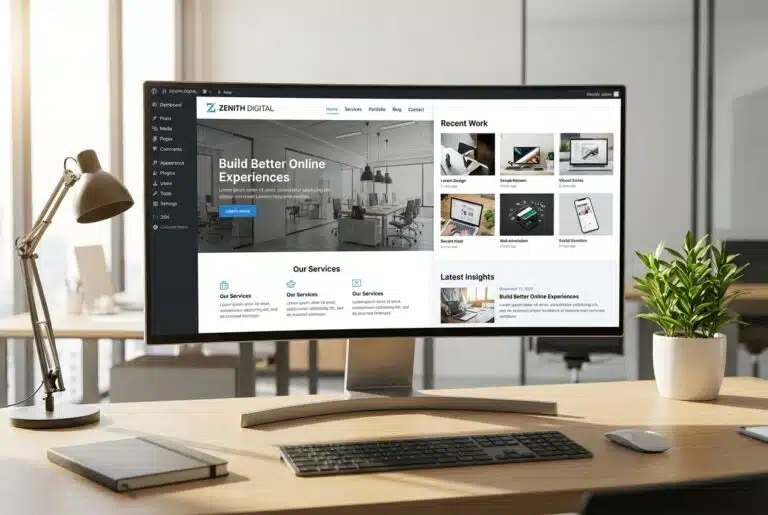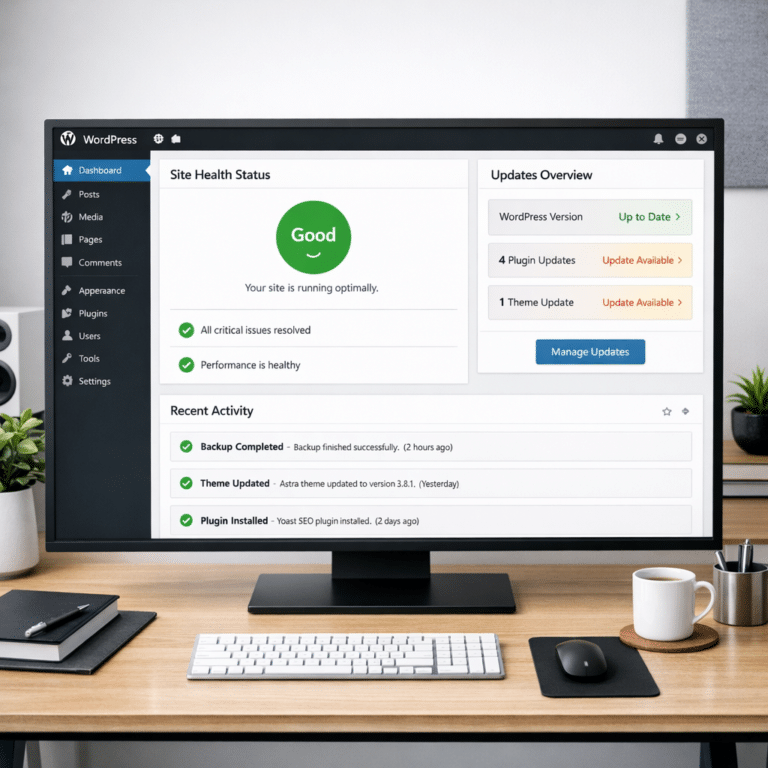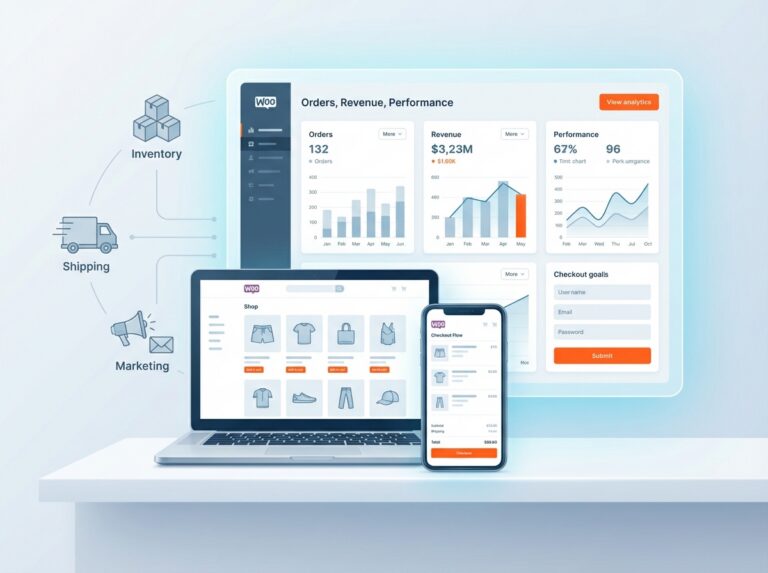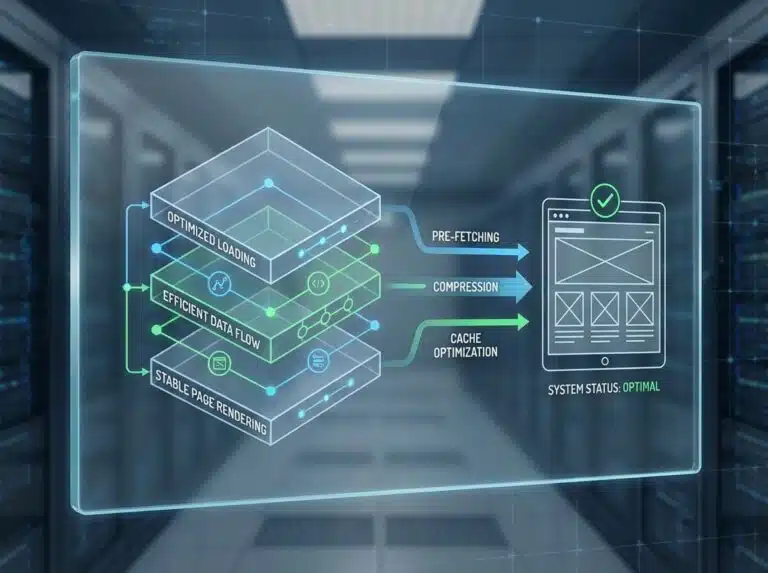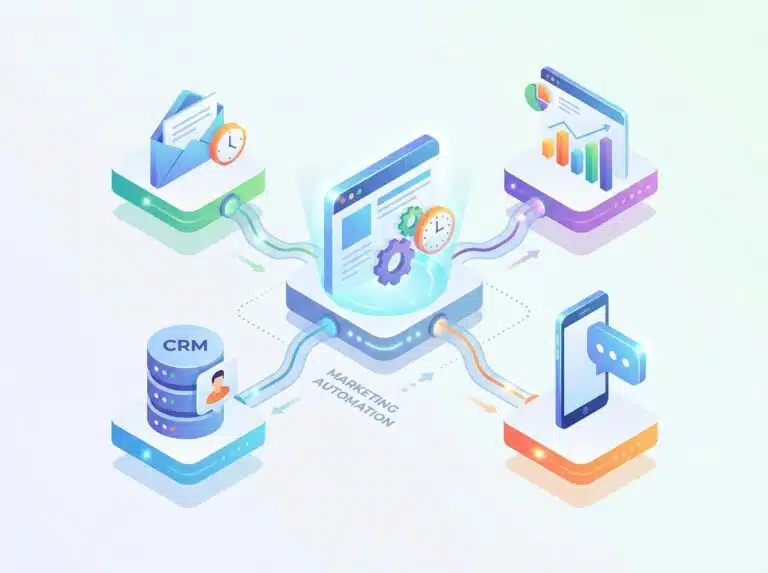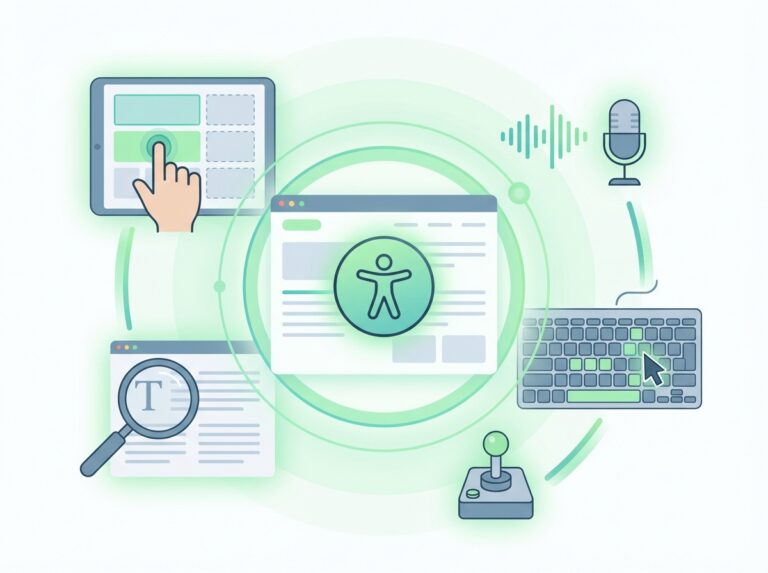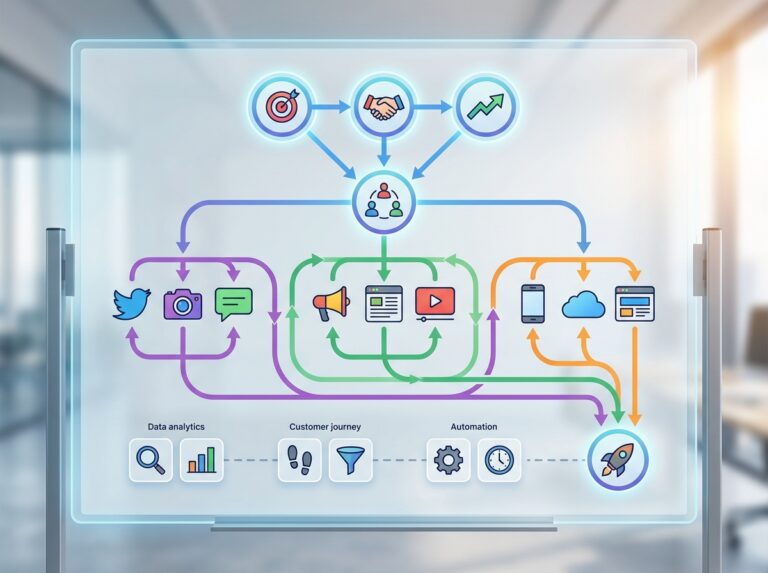Digital services built for clarity, stability, and long-term growth
We design, build, and support WordPress-based digital platforms that organizations rely on every day. Our services are structured to work together, whether you need help with a specific problem or long-term technical stewardship across your site, marketing, and systems. From strategy and design through development, optimization, and ongoing support, we focus on work that holds up over time and adapts as your needs evolve.
- Custom WordPress builds tailored to business needs
- Theme and plugin development
- Scalable site architecture
- Performance-conscious code implementation
- Long-term maintainability focus
- Purpose-driven website design
- UX-focused page layouts
- Responsive design across devices
- Brand-aligned visual systems
- Design built for growth and clarity
- Full-service WordPress partnership
- Strategy, design, and development alignment
- Ongoing technical stewardship
- Cross-functional problem solving
- Long-term platform ownership support
- On-demand technical assistance
- Issue diagnosis and resolution
- Plugin and theme troubleshooting
- Platform guidance and best practices
- Reliable expert support when needed
- Core, theme, and plugin updates
- Ongoing site health monitoring
- Security and stability upkeep
- Preventative maintenance workflows
- Reduced risk and downtime
- Custom WooCommerce store builds
- Checkout and cart optimization
- Product and catalog structuring
- Payment and integration setup
- Scalable eCommerce solutions
- Performance-focused hosting environments
- Server-level optimization
- Secure and reliable infrastructure
- Managed updates and monitoring
- Hosting designed for WordPress sites
- Safe and structured site migrations
- Platform and hosting transitions
- Data and content preservation
- Minimal downtime execution
- Post-migration validation and cleanup
- Search-ready site structure
- On-page SEO optimization
- Technical SEO improvements
- Content alignment for search intent
- Sustainable organic visibility
- Location-based search optimization
- Google Business Profile alignment
- Local page structure and content
- Citation consistency support
- Improved geographic visibility
- Speed and load time improvements
- Core Web Vitals optimization
- Front-end and server tuning
- Media and caching optimization
- Stable performance at scale
- Proactive WordPress security hardening
- Threat detection and prevention
- Secure access and permissions control
- Ongoing monitoring and response
- Reduced risk of breaches and downtime
- Automated lead capture and follow-up
- CRM and marketing tool integration
- Email and workflow automation
- Data-driven customer journeys
- Scalable automation for growth
- WCAG-aligned accessibility improvements
- Inclusive design and content support
- Keyboard and screen reader optimization
- Accessibility auditing and remediation
- Reduced legal and usability risk
- Digital strategy aligned to business goals
- Platform and system planning
- Prioritization and roadmap development
- Cross-channel alignment and clarity
- Decisions grounded in data and constraints
Not sure which service fits your needs?
Let’s talk through your goals and the best next step
Why work with us?
Systems-first thinking
We approach every project as part of a larger system. Design, performance, SEO, and automation are planned together so decisions reinforce each other rather than create friction later.
WordPress specialists, not generalists
WordPress is our core platform, not one of many. This depth allows us to work efficiently, avoid common pitfalls, and build solutions that are maintainable long after launch.
NYC-based, globally capable
We’re based in New York City and understand the pace, standards, and expectations that come with it. At the same time, we work flexibly and collaborate beyond geography when it makes sense for the project.
Practical, execution-ready strategy
We don’t deliver abstract recommendations. Strategy is tied directly to implementation, constraints, and priorities so it can actually be acted on.
Stability over trend chasing
We favor proven approaches over fleeting trends. Our work is designed to stay reliable as platforms, tools, and teams change.
Long-term partnership mindset
We think beyond launch. Whether through support, maintenance, or advisory work, we help ensure what’s built continues to perform and improve over time.
Our Working Process
A structured approach designed for clarity, alignment, and long-term results
We follow a clear, repeatable process that balances strategy with execution. Each step builds on the last so decisions are informed, work stays focused, and outcomes remain predictable as projects evolve.
1.
Understanding the problem
We start by clarifying what’s actually driving the need for change. This includes understanding goals, constraints, existing systems, and points of friction. Clear problem definition prevents wasted effort later.
2.
Discovery and investigation
We review the current site, platform, or workflow to identify strengths and weaknesses. Investigation focuses on structure, performance, usability, and technical health. This creates a grounded view of what’s working and what’s not.
3.
Strategic direction
Based on findings, we define a clear direction forward. Strategy outlines priorities, tradeoffs, and sequencing rather than abstract ideas. This step ensures work stays aligned with real objectives.
4.
Execution and implementation
We translate strategy into practical implementation. Work is carried out methodically, with attention to stability and maintainability. Execution focuses on getting things right, not rushing changes.
5.
Review and refinement
Completed work is reviewed against goals and expected outcomes. Adjustments are made where needed to improve results or resolve edge cases. Refinement ensures quality before moving on.
6.
Ongoing support and iteration
Websites and systems evolve over time. We provide support, maintenance, and advisory input as needs change. This keeps work effective well beyond the initial phase.



